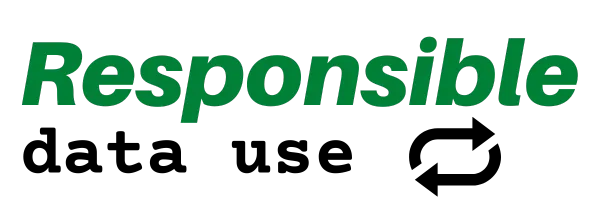show me some
privacy please
How to protect the value in your personal data
by raising your expectation of privacy

A guide to thinking about how you share and use your own personal data
(free download at the foot of this page)
Let's talk about you as a private individual.
Your role as a responsible data user matters even more when it concerns your own personal data.
The way you live your life revolves around your own personal data. You have the identity you were born with. If you're married you might have changed your surname but everything else is more or less the same for you now as it has been for years.
Your fingerprints don't change, your eyes look the same, your date of birth is fixed.
Government agencies assign you a driving license number, passport number, national insurance number, tax references, and so on.
As you go through life you gather new data points: Addresses, telephone numbers, partners, employers, bank accounts, children, credit cards, loans, savings accounts, subscriptions, email addresses - there's an alomost endless list of data points which record your path.
Then there is the trail you leave behind you as you do things: Educational records; workplace records; holidays; life experiences; social media accounts; your opinions, your preferences, even your thoughts.
You have a vital role to play in the data economy.
All this data gathered about you and around you represents value. It is worth something to you - and it is worth something to other people and organisations.
If it was suddenly taken from you, what would you do?
Have you ever worried about the data you feel you need to share every time you want to do something?
Do you feel vulnerable after you have shared your personal data?
Do you worry that it might fall into the wrong hands?
Are you concerned that you might not get your data back?
Or are you unconcerned about sharing your personal information?
I'll ask you again. If it was all taken away from you tomorrow, what would you do?
Think about this for a moment.
Someone else using your driving license or passport.
Someone else inside your online banking.
Someone else using your name and home address.
Your personal information combined with inaccurate data sets to make it useless.
Just because these things have never happened to you before, doesn't mean to say they won't happen to you tomorrow.
As we enter a new, "data driven" age which features things like personalisation and artificial intelligence (AI) - all of which relies on using data, especially data about you - in the rush to share data to realise the value it contains, most people have forgotten to feel vulnerable.
Yet it's the first thing an individual feels the moment they realise something has gone wrong with their personal data.
You know, that cold sweat, shiver down your spine, queasy stomach and red face sensation you get when your work suddenly disappears from your laptop screen. Or the police arrive at your door and show you a driving licence displaying your details but someone else's photograph. Or when money goes missing from your bank account.
Or when you discover your email account is being used to send spam messages to hundreds of thousands of email accounts, using your contacts book? Or when your medical records are attached to an email and sent to the wrong recipient?
You've never had that?
Think yourself lucky.
These are examples of situations which suddenly wipe out all the value in your own personal data. They are real life examples I dealt when I worked as a data protection officer.
Your personal data is vulnerable. Not just to being stolen. It can get lost, damaged, have errors added to it, deleted or used against you.
Many data controllers are in too much of a hurry to bother putting your interests above their own. They have all the technology at their disposal but none of the data governance required to keep you safe.
It is time for you to set your expectation of privacy for every time you are exected to share your personal data.
It is time you personally held data controllers to account for the way they use your information.
Which is why this ebook is available to you now as a free PDF download. You don't even need to sign up for it.
Just download it and read it. If you like the advice and suggestions it contains, you might follow them - and make yourself and your personal data that bit less vulnerable.
Show Me Some Privacy Please

